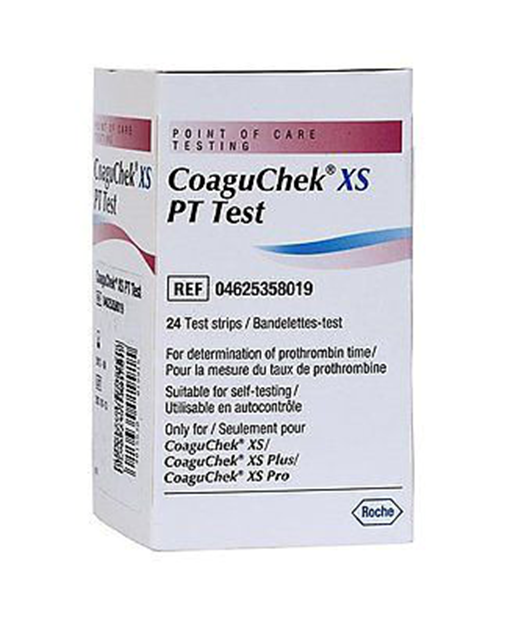The FDA recently announced the recall of CoaguChek XS PT test strips, which were used with INR test meters to monitor patient response to the blood thinning drug warfarin. More than 1.1 million packages of the strips have been pulled from the market because they can give inaccurate test results, putting patient health at risk.
The FDA has categorized this recall as a “Class 1” recall, which is the most serious type of recall and indicates the use of the products could cause serious injuries or death.
Patients Advised to Stop Using Defective Test Strips

Manufacturer Roche Diagnostics sent an urgent medical device correction to healthcare professionals on September 12, 2018. In the letter, they noted that after recalibrating the test strips to the latest World Health Organization INR in January 2018, some patients began reporting abnormally high INR test results with some of the test strips.
The FDA noted in a press release that about 90 medical device reports and two serious patient injuries involving strokes were reported concerning the INR test strips. They added that incorrect INR results “are of particular concern for individuals at an increased risk of blood clots including those with mechanical heart valves, atrial fibrillation (irregular heartbeat), who are at a high risk of stroke, or those who had a recent blood clot.”
Roche plans to re-calibrate the test strips and provide new ones to replace the defective ones and to deliver these by the end of November. Meanwhile, patients are advised to stop using the strips and check with their healthcare providers about alternative test methods available. Both patients and doctors can also contact Roche Diagnostics for more information at 1-800-428-4674. To discover if your test strips are affected by the recall, check the lot number list below.
| Product | Catalog numbers |
Affected lot numbers | |
| CoaguChek XS PT Test 2×24 Strips |
04625315160 | 28124111 28124121 28631911 28631921 28631924 28632021 28632213 28632312 28632412 29415113 29415123 29494221 29494312 29494613 29494711 29778721 29779012 29779213 29779214 30497213 30497311 30497413 |
30497423 30497515 31404314 31404821 32264116 32264212 32264316 32264317 32264411 32264421 33045913 33046011 33046113 33046312 33046314 33046321 33046322 33449612 33449712 33449723 33449817 |
| CoaguChek XS PT Test 6 Strips |
04625374160 | ||
| CoaguChek XS Test 24 Tests USA |
07797826160 | ||
What is an INR Test Meter?
An INR test meter is a portable, battery-operated device used to monitor a patient’s response to warfarin, a blood-thinning drug used to help prevent blood clots. “INR” stands for “international normalized ratio,” which is a laboratory measurement of how long it takes blood to form a clot (also called “prothrombin time” or PT). The measurement helps determine if a patient needs a higher or lower dose of warfarin to keep them safe from stroke, heart attack, and other blood clot-related events.
Since response to warfarin can vary from person to person and over the course of a disease, it’s important to regularly test the blood to make sure that it’s not thinning too much—that could cause excessive bleeding—or thinning too little, which could increase the risk of a blood clot. Both doctors and patients use INR test meters to monitor warfarin’s effectiveness and adjust dosage as necessary.
To use the meter, the patient (or doctor) inserts the test strip into it, pricks a finger to get a drop of blood, then applies that blood to the meter. The meter “reads” the test strip, measures how long it takes for the blood to clot, and provides the results in the form of an INR.
The recalled units of CoaguCheck XS PT test strips were found to sometimes give inaccurate INRs.







